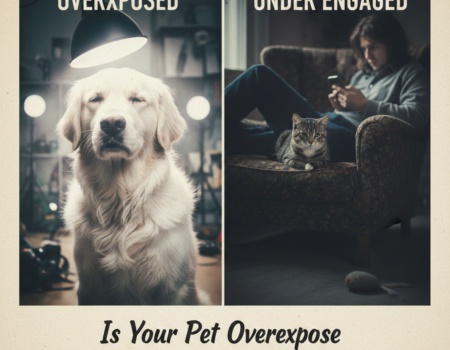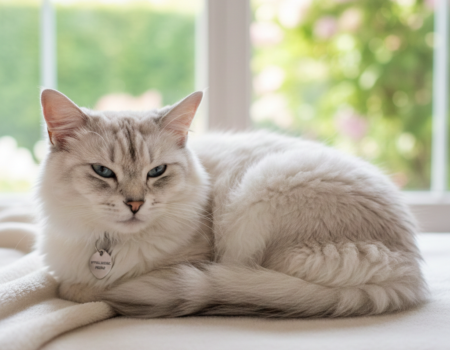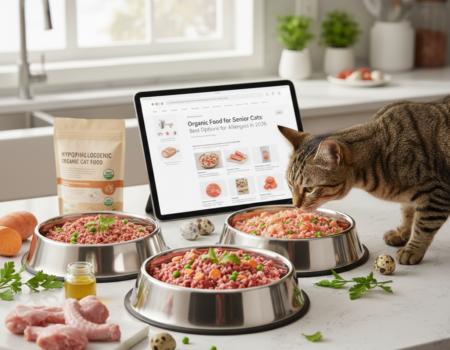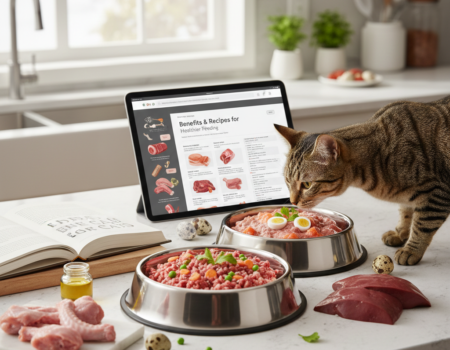Can Cats Drink Lactose-Free Milk? Find Out Here!
As the famous philosopher Albert Einstein once said, “The important thing is not to stop questioning. Curiosity has its own reason for existing.” This quote perfectly captures the essence of our topic today – can cats drink lactose-free milk? It’s a question that many cat owners have pondered, and it’s important to explore the answers.
In this article, I will delve into the realm of feline digestive issues, exploring the compatibility of lactose-free milk with feline nutritional needs and examining safe milk-based options for our beloved cats. Whether you have a lactose intolerant cat or simply want to provide cat-friendly milk alternatives, this article will help you make informed decisions about your feline friend’s diet.
Key Takeaways:
- Cats are lactose intolerant and lack the enzymes needed to digest lactose, the sugar found in milk.
- Lactose-free milk can be a hydration source or occasional treat for cats, but should not replace water.
- Regular cow milk is not recommended for cats due to its lactose content.
- Goat milk contains less lactose than cow milk, but may still not be suitable for lactose intolerant cats.
- Plant-based milk alternatives are not recommended for cats due to their inability to absorb the necessary nutrients.
Can Cats Drink Regular Cow Milk?
Regular cow milk is not recommended for cats due to its lactose content. However, lactose-free cow milk can be safe for cats to drink. It is important to note that lactose-free cow milk does not provide any significant nutritional value to a cat’s diet and should be considered a redundant source of hydration or occasional treat.
Lactose, the sugar found in cow milk, is difficult for cats to digest as they lack the necessary enzymes. This can lead to gastrointestinal discomfort such as gas, bloating, and diarrhea. Cats that are lactose intolerant may experience more severe symptoms.
If you are considering giving your cat regular cow milk, it is crucial to be aware of the potential risks and consequences. While lactose-free cow milk may not cause immediate adverse reactions, it is still important to remember that cats are obligate carnivores and derive the majority, if not all, of their nutritional needs from meat-based diets.
To provide a balanced and nutritious diet for your feline friend, it is best to consult with a veterinarian and choose cat-friendly alternatives that are formulated to meet their specific nutritional requirements.
For the full nutritional value of cow milk, please refer to the table below:
| Nutrient | Amount per 100g |
|---|---|
| Energy | 61 kcal |
| Protein | 3.2 g |
| Fat | 3.4 g |
| Carbohydrate | 4.8 g |
| Lactose | 4.8 g |
| Calcium | 120 mg |
| Vitamin D | 0.5 µg |
Please note that the nutritional values provided are approximate and may vary depending on the brand and type of cow milk.
Is Goat Milk a Better Option for Cats?
When it comes to choosing a milk alternative for cats, goat milk has gained popularity due to its lower lactose content compared to cow milk. This makes it potentially easier for cats to digest. However, before considering goat milk as an option for your feline friend, it’s important to understand the sensitivity to lactose in cats and consult with a veterinarian.
Goat milk contains a lower lactose content than cow milk, which can be beneficial for cats who may have lactose intolerance or sensitivity to lactose. Lactose intolerance occurs when a cat lacks the enzyme needed to break down lactose, leading to digestive issues.
However, not all cats with lactose intolerance can tolerate goat milk. Some cats may still have adverse reactions to even the lower lactose content in goat milk. Therefore, it is crucial to consult with a veterinarian before introducing goat milk into your cat’s diet.
A veterinarian can provide guidance based on your cat’s specific needs and recommend suitable alternatives if goat milk is not a viable option. They can also assess your cat’s overall health, diet, and any existing allergies or sensitivities to ensure their well-being.
Remember, while goat milk may be a potential alternative to cow milk for some cats, it should never replace water as the primary source of hydration. Water should always be readily available for cats to maintain their overall health and well-being.
Image: Goat milk is a potential alternative for cats due to its lower lactose content, but it’s important to consult with a veterinarian before introducing it into your cat’s diet.
Can Cats Drink Plant-Based Milk?
Plant-based milk substitutes such as almond milk, soya milk, and coconut milk are not recommended for cats. Cats lack the necessary enzymes to metabolize the carbohydrates and absorb the protein from these plant-based milks. Additionally, these milks can contain substances that are harmful to cats, such as phytates in soya milk and high-fat content in almond and coconut milk. Most plant-based milk alternatives are also sweetened during production, which makes them unsuitable for cats.
While these milk alternatives may seem appealing as a dairy-free option, they can have adverse effects on a cat’s health. Cats require a diet rich in animal protein and nutrients specifically designed for their unique physiology. Plant-based milks do not provide the same nutritional value as quality cat food does.
It is essential to prioritize a cat’s health and ensure they receive a balanced and appropriate diet. Plant-based milk substitutes should not be considered suitable alternatives for cats.
If you are seeking a milk-like treat for your cat, there are safer options available. Consult with a veterinarian to find suitable cat-friendly treats or explore specialized lactose-free cat milk products that are formulated to meet feline nutritional needs.
Comparison of Plant-Based Milk Alternatives
| Milk Substitute | Suitable for Cats | Key Concerns |
|---|---|---|
| Almond Milk | No | High in fat, lacks necessary nutrients, potential gastrointestinal issues. |
| Soya Milk | No | Contains phytates that can inhibit nutrient absorption, potential allergic reactions. |
| Coconut Milk | No | High in fat, lacks necessary nutrients, potential gastrointestinal issues. |
Special Lactose-Free Milk for Cats—Trick or Treat?
Specialized lactose-free milk products for cats are available on the market. These products cater to the needs of lactose-intolerant cats and offer a safe alternative to conventional dairy milk. Lactose-free cat milk is formulated to be easily digestible and provides additional nutrients to support your cat’s well-being.
One key feature of these specialized cat milk products is the inclusion of added lactase enzymes. Lactase is an enzyme that helps break down lactose, allowing cats to digest the milk more efficiently. By including these enzymes, lactose-free cat milk ensures that your furry friend can enjoy milk without experiencing any digestive discomfort.
In addition to lactase enzymes, lactose-free cat milk may also contain added vitamins and minerals to support your cat’s overall health. These nutrients can contribute to a well-rounded diet and help meet your cat’s nutritional requirements. Some lactose-free cat milk products may even include malt extract, which aids in digestion and can assist in the passage of hairballs.
However, it is important to note that some specialized cat milk products may also contain taste enhancers and thickeners to make them more palatable. While these additives may enhance the taste and texture of the milk, it’s always a good idea to check the ingredient list and consult with your veterinarian to ensure that the product is suitable for your cat.
Considerations Before Adding Milk to a Cat’s Diet
Before introducing milk to your cat’s diet, it’s important to consider several factors to ensure their safety and well-being. Cats can have allergies or intolerance to milk, and giving them the wrong amount or type of milk can lead to digestive issues and discomfort. Here are some key considerations to keep in mind:
Potential Allergy or Intolerance: Some cats may be allergic or intolerant to milk, specifically the lactose found in it. Lactose intolerance can cause gastrointestinal symptoms such as upset stomach, diarrhea, and loss of appetite. It’s essential to monitor your cat for any adverse reactions or symptoms after consuming milk.
Amount of Milk: While cats may enjoy the taste of milk, it should only be given in moderation. Too much milk can upset their stomach and potentially lead to digestive issues. It’s crucial to control the portion size and avoid excessive milk consumption.
Daily Food Intake: Milk should not replace a cat’s regular diet. Cats are obligate carnivores and require a balanced diet that primarily consists of meat-based cat food. Milk should only be considered as an occasional treat and make up a small percentage of their calorie intake.
Cat’s Overall Health: Consider your cat’s overall health before adding milk to their diet. If your cat has pre-existing health conditions, such as kidney disease or pancreatitis, or if they are overweight, it’s best to consult with a veterinarian before introducing milk as it may not be suitable for their specific needs.
Monitoring your cat for any symptoms of milk allergy or intolerance is crucial. If you notice any adverse reactions or your cat’s health deteriorating after consuming milk, it’s recommended to reach out to a veterinarian for further guidance and advice.
Comparison of Milk Options for Cats
| Milk Type | Lactose Content | Suitable for Cats? |
|---|---|---|
| Regular Cow Milk | High | No |
| Lactose-Free Cow Milk | Negligible | Yes, in moderation |
| Goat Milk | Lower than cow milk | Case-by-case basis |
| Plant-Based Milk (Almond, Soya, Coconut) | Varies | No |
| Lactose-Free Cat Milk | Negligible | Yes, under veterinary supervision |
Note: The lactose content mentioned in the table is a generalization and may vary depending on the brand and product. It’s always advisable to check the label for specific lactose content and consult with a veterinarian.
Milk as an Occasional Treat for Cats
Milk can be a delightful occasional treat for your feline friend, but it should not be a significant part of their diet. Cats are obligate carnivores, which means their primary source of nutrition should come from meat. While giving treats, including milk, is a way to show love and affection to your cat, it’s important to consider their caloric intake and dietary needs.
Cats have specific nutritional requirements, and their main meals should provide essential nutrients for their overall well-being. Treats, such as milk, should only make up about 4% of a cat’s calorie intake to maintain a balanced diet. So, while you can give your cat a small amount of milk as a special treat, it’s important not to overdo it and ensure it fits within their overall calorie intake.
It’s also crucial to be mindful of the caloric value of different types of milk and their impact on a cat’s calorie intake. Let’s take a look at the approximate caloric values for different types of milk:
| Type of Milk | Calories per 100ml |
|---|---|
| Cow Milk | 60-70 calories |
| Goat Milk | 60-70 calories |
| Lactose-Free Cat Milk | 50-60 calories |
Considering the caloric value of different milk types, it’s essential to account for the percentage of a cat’s daily calorie intake when offering milk as a treat. This will help ensure that your cat receives appropriate nutrition and doesn’t exceed their overall caloric needs. Remember to consult with your veterinarian for specific dietary recommendations tailored to your cat’s individual needs.
Why Cats Should Avoid Regular Cow Milk
Regular cow milk should be avoided by cats due to their dairy intolerance. Cats lack the necessary enzymes to properly digest lactose, the sugar found in cow milk. Feeding regular cow milk to cats can lead to digestive issues such as gas, bloating, diarrhea, and dehydration.
Unlike humans, cats do not produce enough lactase, the enzyme responsible for breaking down lactose. As a result, undigested lactose can ferment in the cat’s digestive system, causing discomfort and gastrointestinal problems. This intolerance to lactose is common among cats, making regular cow milk unsuitable for their consumption.
When cats consume regular cow milk, their bodies struggle to break down lactose, resulting in the following digestive issues:
- Gas: Cats may experience excessive gas production, leading to discomfort and bloating.
- Bloating: The fermentation of lactose in the digestive system can cause bloating and discomfort in cats.
- Diarrhea: Cats with lactose intolerance may develop diarrhea as a result of consuming regular cow milk.
- Dehydration: Diarrhea caused by lactose intolerance can lead to dehydration in cats if left untreated.
It is important for cat owners to understand the potential risks of giving regular cow milk to their pets. Instead of cow milk, cat owners should provide alternative sources of hydration and occasional treats that are safe and suitable for feline digestion.
“Regular cow milk should be avoided by cats due to their intolerance to lactose, which can lead to digestive issues such as gas, bloating, diarrhea, and dehydration.”
As responsible cat owners, it is crucial that we prioritize our feline companions‘ health and well-being by providing them with appropriate and nutritionally balanced food and drink options.
When it comes to taking care of our cats, it’s important to remember that they have unique dietary needs and sensitivities. While cats may be curious about milk, regular cow milk is not a suitable choice for them. Instead, there are specialized cat milk products available that cater to their lactose intolerance.
What to Do if Your Cat Drinks Milk
If your cat accidentally drinks milk or shows symptoms of milk ingestion, it is important to monitor their behavior and gastrointestinal health closely. Cats are often lactose intolerant, and consuming milk can lead to digestive issues.
Symptoms of Milk Ingestion in Cats
- Vomiting
- Diarrhea
- Upset stomach
- Loss of appetite
If you notice any of these symptoms after your cat drinks milk, it may be an indication that they are having an adverse reaction to lactose.
Seek Veterinary Assistance
If symptoms such as vomiting or diarrhea persist, it is recommended to seek veterinary assistance. A veterinarian will be able to assess your cat’s condition and provide appropriate treatment. While there is no permanent medical solution for lactose intolerance or milk allergies, supportive treatments such as antihistamines, decongestants, and probiotics may be administered to alleviate symptoms.
It is essential to consult a veterinarian for proper diagnosis and guidance, as they can provide specific recommendations based on your cat’s individual needs. Remember, the health and well-being of your feline companion should always be a top priority.
Veterinary Assistance for Milk Ingestion
| Veterinary Assistance | Treatment Options |
|---|---|
| Assessment | Evaluation of cat’s condition and history |
| Supportive Treatments | Antihistamines, decongestants, and probiotics |
| Monitoring | Ongoing observation of symptoms and progress |
| Recommendations | Dietary changes, if necessary |
Seeking veterinary assistance is crucial to ensure the well-being of your cat. A veterinarian can provide expert advice on managing lactose intolerance or milk allergies and suggest alternative hydration sources or treats suitable for your cat’s digestive system.
Importance of a Balanced Diet for Cats
A cat’s diet plays a crucial role in their overall health and well-being. As natural carnivores, cats require a diet that is primarily composed of meat. Meat provides essential nutrients such as protein, fat, vitamins, and minerals that are vital for their optimal health.
Cats are unable to produce certain essential nutrients on their own, which means that these nutrients must be obtained through their diet. A balanced diet ensures that cats receive all the necessary nutrients to support their growth, development, and overall body functions.
When it comes to choosing cat food, it is important to select high-quality options that meet all of their nutritional requirements. High-quality cat food is designed to provide a complete and balanced diet, ensuring that cats receive the right combination of proteins, fats, vitamins, and minerals.
Feeding your cat high-quality cat food is beneficial for several reasons. First, it ensures that your cat receives the necessary nutrients they need for healthy growth and development. Second, high-quality cat food helps support their immune system, digestive health, and overall vitality.
Furthermore, a balanced diet that includes high-quality cat food helps prevent nutritional deficiencies or imbalances that can lead to various health issues in cats. By providing your cat with the right nutrition, you are promoting their long-term health and helping them live a happy and fulfilling life.
It’s important to note that while a balanced diet primarily consists of meat, cats can also benefit from other essential nutrients found in vegetables and grains. However, these should only make up a small portion of their overall diet, with the majority of their nutrition coming from meat-based sources.
The Essential Nutrients for Cats
- Protein: Cats require a diet high in protein to support healthy muscle development and repair.
- Fat: Fat provides energy and is essential for the absorption of fat-soluble vitamins.
- Vitamins: Cats need a range of vitamins, including vitamin A, D, E, and B complex vitamins, to support various bodily functions.
- Minerals: Essential minerals such as calcium, phosphorus, iron, and zinc are necessary for proper growth and development in cats.
By providing your cat with a balanced diet that includes high-quality cat food, you are ensuring that they receive all of these essential nutrients to thrive and maintain optimal health.
Comparison of Different Cat Food Types
| Food Type | Pros | Cons |
|---|---|---|
| High-Quality Meat-Based Cat Food |
|
|
| Veterinarian-Recommended Prescription Diets |
|
|
| Generic Store-Brand Cat Food |
|
|
What to Look for in High-Quality Cat Food
When selecting cat food, it is important to choose high-quality options that meet your feline companion’s nutritional needs. Here are some key factors to consider when evaluating cat food:
- Nutritional Characteristics: Look for cat food that provides a well-balanced and complete diet. It should contain the necessary nutrients, vitamins, and minerals that cats require for optimal health.
- Moisture Content: Cat food with a high moisture content, ideally around 70%, is beneficial for a cat’s overall hydration. Wet cat food, particularly those with jelly or gravy, can help prevent dehydration and urinary tract problems.
- Protein and Fat Content: Cats are obligate carnivores and require a high protein diet. Look for cat food with more than 50% protein content to support lean muscle maintenance and energy production. It is also important to choose cat food with a moderate fat content, up to 20%, to support healthy skin and coat.
- Natural Ingredients: Opt for cat food that uses natural ingredients and avoids artificial additives, colorings, flavorings, and preservatives. This ensures that your cat is consuming a diet that is closer to their natural prey.
By considering these factors, you can ensure that you are providing your cat with high-quality food that meets their nutritional needs. Remember to consult with your veterinarian for specific dietary recommendations based on your cat’s age, health, and lifestyle.
Conclusion
In conclusion, it is generally not recommended for cats to consume milk. Regular cow milk contains lactose, which many cats are intolerant to, leading to digestive issues such as gas, bloating, diarrhea, and dehydration. While lactose-free milk can be a safer option for cats, it should only be given in moderation and not as a replacement for water. Water is the best source of hydration for cats, and it should always be available to them.
A balanced diet consisting of meat-based cat food is crucial for meeting a cat’s nutritional needs. Cats are obligate carnivores, meaning their diet should primarily consist of meat. High-quality cat food provides essential nutrients like protein, fat, vitamins, and minerals that cats require for optimal health. Treats such as milk should only make up a small percentage of a cat’s calorie intake.
While cats may enjoy the taste of milk, it is important to prioritize their health and well-being. Understanding the risks and limitations of giving milk to cats can help ensure they receive the proper nutrition they need to thrive. By choosing suitable alternatives and providing a balanced diet, cat owners can promote their feline companions’ optimal health and happiness.
FAQ
Can cats drink regular cow milk?
Cats are lactose intolerant and regular cow milk can cause digestive issues for them. It is not recommended to give regular cow milk to cats.
Is lactose-free cow milk safe for cats?
Lactose-free cow milk can be safer for cats to drink as it does not contain lactose. However, it does not provide significant nutritional value and should only be given in moderation.
Can cats drink goat milk?
Goat milk contains less lactose than cow milk, but it may still cause issues for cats with lactose intolerance. It is advisable to consult a veterinarian before introducing goat milk to a cat’s diet.
Can cats drink plant-based milk alternatives?
No, cats should not drink plant-based milk alternatives such as almond milk, soya milk, or coconut milk. These milks are not suitable for cats and can cause digestive problems and contain substances that are harmful to them.
Are there specialized lactose-free milk products for cats?
Yes, there are specialized lactose-free milk products for cats available on the market. These products contain added lactase enzymes to help cats digest lactose properly. However, it is important to read the ingredients and consult with a veterinarian.
What should I consider before adding milk to a cat’s diet?
Consider the cat’s potential allergy or intolerance to milk, the amount of milk being given, the cat’s daily food intake, and the cat’s overall health. Monitor the cat for any adverse reactions or symptoms of milk allergy or intolerance.
Can milk be given as an occasional treat for cats?
Yes, milk can be given as an occasional treat for cats. However, it should not make up a significant portion of their diet and should only make up about 4% of a cat’s calorie intake.
Why should cats avoid regular cow milk?
Regular cow milk contains lactose, which many cats are intolerant to. Cats lack the necessary enzymes to properly digest lactose, which can lead to digestive issues such as gas, bloating, diarrhea, and dehydration.
What should I do if my cat drinks milk?
If your cat drinks milk or shows symptoms of milk ingestion, monitor their behavior and gastrointestinal health closely. If symptoms persist, seek veterinary assistance.
Why is a balanced diet important for cats?
A balanced diet is important for cats as they are carnivores and require essential nutrients found in meat for optimal health. Choosing a high-quality cat food that meets all nutritional requirements is crucial.
What should I look for in high-quality cat food?
Look for cat food with a high moisture content, high protein content, and a moderate fat content. Avoid cat food with vegetable or animal derivatives, artificial ingredients, and artificial colorings/flavorings.










No Comment! Be the first one.